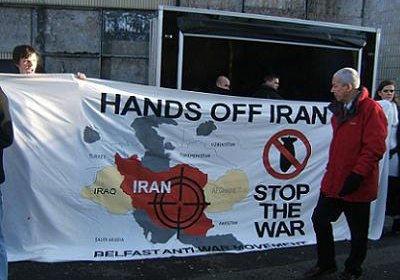Into the Woods: The Battle for Tasmania’s Forests
by Anna Krien, BlackInc, 2010, 304 pages, $29.95
REVIEW BY TIM DOBSON
“I was the premier of Tasmania but these bastards were infinitely more powerful than me. You’ve no idea how powerful they are. I couldn’t move. For God’s sake, keep fighting them. That’s why I’m ringing you, they have to be stopped.”
Two weeks before his death, former Tasmanian Labor premier Jim Bacon, said these words in a phone call to well-known anti-pulp mill campaigner and ABC TV’s Gardening Australia host Peter Cundall.
Tim Dobson
One week after Israel massacred peace activists on the high seas, the United Nations Security Council decided to implement sanctions — not against Israel, but rather Iran. Iran’s nuclear program, which was the reason for the sanctions, doesn’t include nuclear weapons nor the capacity to produce them.
The resolution adopted by the Security Council, with 12 votes for, two votes against and one abstention, imposes new restrictions on trade with Iran, as well as an expanded arms embargo.
After weeks of political wrangling and uncertainty since the March 20 state elections, a new government has been formed in Tasmania. For the first time in Australia’s history, the Greens will have ministry positions.
The Labor Party and the Greens agreed to a “power sharing deal”, which offered a ministry for Greens leader Nick McKim and a cabinet secretary position for Greens MP Cassy O’Connor.
A Tasmanian opinion poll released on February 24 by EMRS has stunned political commentators throughout Australia, with headlines noting the surge in support for the Greens.
Resistance activist Melanie Barnes is standing as a candidate in the upcoming Tasmanian state elections for the Socialist Alliance. She isn’t running to improve her career prospects or income, but because she wants to get an important message out.
The spectre of the locally powerful woodchipping corporation Gunns and its relationship with the government hangs over the impending state election like a murky cloud. This is despite construction of Gunns’ proposed pulp mill remaining stalled, due to public pressure and its inability to raise finance.
Deputy PM Julia Gillard’s different reactions to two media controversies say a lot about the denial of racism in Australia. After performers on the television show Hey Hey It’s Saturday did a blackface skit Gillard was insistent that “obviously I think whatever happened was meant to be humorous and would be taken in that spirit by most Australians”.
Before and after the invasion of Iraq, the war’s goal of privatising Iraq’s oil to the benefit of Western oil corporations was highlighted not just by the war’s opponents, but also by many of its supporters.
The mainstream media have been quick to praise the “resilience” of the Australian economy and the Rudd government has lauded itself for avoiding a “technical recession”, but the human impact of the economic downturn has been downplayed.
Two car bombs exploded in Baghdad on October 25, targeting the justice ministry and the Baghdad Provincial Council building. This was the deadliest attack in Iraq in two years, with 155 people killed. Among the victims were 24 school children.
The Tasmanian ALP government is facing another political crisis stemming from its pro-business politics. This time it is over the contract it signed with shipping operator Southern Shipping to provide a 50 kilometre ferry service between the Bass Strait islands and Bridport, on the Tasmanian mainland.
On October 10, a hole was burnt in the doormat of Gunns Limited chairperson, John Gay. Some crude graffiti was also drawn on his fence.
- Previous page
- Page 5
- Next page

